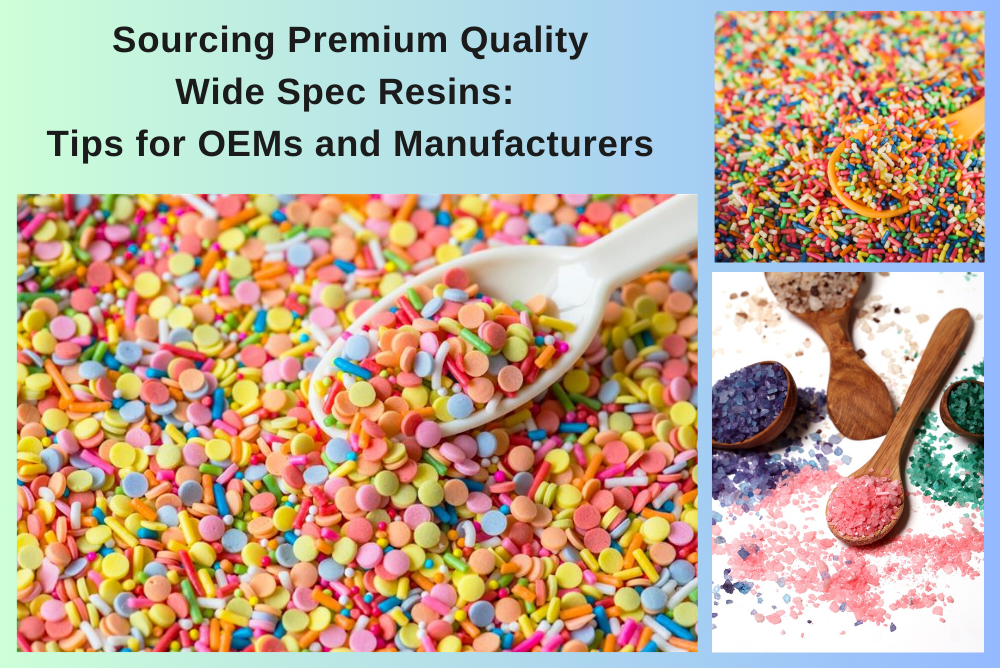The connecting rod is an important part of the car engine and plays a vital role in the overall function of the engine. Its main purpose is to connect the piston to the crankshaft and convert the reciprocating motion of the piston into the rotational motion of the crankshaft. The application of automotive engine connecting rods is crucial to the normal operation of the engine. It ensures power transfer, provides strength and durability, helps reduce weight, aids in engine balance and allows customization for various engine requirements Fiat Connecting Rod,Car Engine Connecting Rods,Aluminum Connecting Rods,Car Connecting Rods Wuhu Hangtian Automobile Connecting Rod Co., Ltd , https://www.htconrod.com
Wide spec or off-spec resins are byproducts of the virgin plastic polymerization process that do not meet the required specifications for standard plastic products. These resins are typically purchased by wide spec resin suppliers, resin compounders, and other secondary processors. They may have undergone changes in physical or chemical properties due to factors like heat exposure, contamination, or improper processing. Despite these variations, they can still be used in a variety of applications. Plastic resin suppliers often sell wide spec resins at a lower cost than virgin resins, making them an attractive option for manufacturers looking to reduce expenses without compromising on performance.
This post explores the different types of wide spec resins, their unique properties, common applications, and tips on how to choose the right material for your needs.

**What Are Wide Spec Resins?**
Also known as off-grade resins, wide spec resins fall outside the typical specification range for standard plastics. Depending on the nature of the deviation—such as color, density, mechanical strength, or other characteristics—they can be classified as either good or bad wide spec resins. Visually, these resins might appear discolored, such as pale, yellowed, or caramelized. Since they are byproducts of the virgin resin production process, they don’t require additional time or cost to produce, making them a cost-effective alternative.
**Types, Properties, and Applications of Wide Spec Resins**
While it’s hard to define off-grade resins precisely, their properties often differ slightly from standard ones depending on the type. Here are some common examples:
- **ABS (Acrylonitrile Butadiene Styrene)**
- **Standard Properties**: A thermoplastic known for high impact resistance, durability, and ease of machining. It's widely used in automotive parts, electronics, and consumer goods.
- **Wide Spec**: May show changes in color, density, or mechanical strength due to improper blending or processing.
- **Applications**: Computer peripherals, vehicle interiors, toys, and electrical enclosures.
- **Acrylic**
- **Standard Properties**: Offers excellent transparency, impact resistance, and is lightweight. Commonly used as a glass substitute.
- **Wide Spec**: May be opaque or have altered tensile strength, affecting its use in optical applications.
- **Applications**: Lenses, partitions, furniture, and display screens.
- **Polycarbonate (PC)**
- **Standard Properties**: Known for its strength, transparency, and UV resistance. Often used as a glass alternative.
- **Wide Spec**: May vary in transparency, density, or impact resistance due to inconsistent formulation.
- **Applications**: Kitchenware, containers, and protective shields.
- **Polypropylene (PP)**
- **Standard Properties**: Lightweight, heat-resistant, and versatile. Can be made rigid or flexible.
- **Wide Spec**: May exhibit differences in hardness or thermal resistance due to irregular chain structures.
- **Applications**: Packaging, films, and consumer goods.
- **Polyurethane (PU)**
- **Standard Properties**: Flexible, durable, and capable of withstanding abrasion and low temperatures.
- **Wide Spec**: May have an altered molecular structure, affecting its performance.
- **Applications**: Seals, gaskets, wheels, and sporting equipment.
**How to Choose the Right Wide Spec Resin**
Selecting the appropriate wide spec resin depends on your specific application and operating conditions. Consider the following:
- Understand your project requirements and match them with the material properties.
- Opt for wide spec resins if they meet your needs or request customizations.
- Evaluate key properties like density, melting point, temperature resistance, and mechanical strength.
- Ensure the material is safe and free from harmful emissions.
- Check for acceptable color variation based on your application.
- Consider surface finish and texture requirements.
- For sensitive industries like food or healthcare, ensure compliance with certifications such as FDA, RoHS, REACH, and NSF.
If you're an OEM producing large volumes of plastic parts, sourcing high-quality wide spec resins is crucial. Partner with trusted suppliers who can provide consistent quality and tailored solutions. **Mid Continent Plastics** is a leading supplier of engineering plastics, offering reliable wide spec resin solutions for all your needs. With over 30 years of experience, we are committed to delivering excellence.
[Contact Us](http://bsg-i.nbxc.com/blog/19dd8a735430767efb061bc4aeefc286.png)